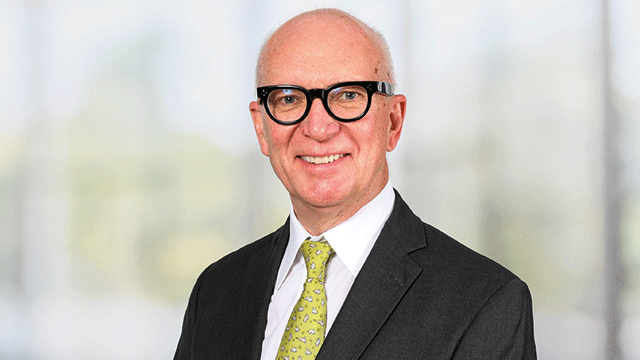Housing affordability ‘critical’ to keep London top
MIPIM 2018: Housing affordability is the “critical path through which everything else travels” in London, according to The Crown Estate’s chief investment officer Paul Clark.
Speaking at EG’s “London Realigned” session at MIPIM, Clark added that infrastructure, air quality, and congestion, along with affordability of housing, were the four main things which “London has to get right over the medium term” in order to ensure that it maintains its position as one of the top global cities.
Clark implored the government to improve London’s connectivity to the rest of the country, as well as forging and maintaining global connections: “It is absolutely vital that London is seen as not just working for the benefit of itself, but also for the UK as a whole – because that is absolutely at the heart of its license to operate.”
MIPIM 2018: Housing affordability is the “critical path through which everything else travels” in London, according to The Crown Estate’s chief investment officer Paul Clark.
Speaking at EG’s “London Realigned” session at MIPIM, Clark added that infrastructure, air quality, and congestion, along with affordability of housing, were the four main things which “London has to get right over the medium term” in order to ensure that it maintains its position as one of the top global cities.
Clark implored the government to improve London’s connectivity to the rest of the country, as well as forging and maintaining global connections: “It is absolutely vital that London is seen as not just working for the benefit of itself, but also for the UK as a whole – because that is absolutely at the heart of its license to operate.”
Housing and infrastructure were also seen as being of huge importance by founding director of dRMM Architects Professor Sadie Morgan who said that London had to aggressively and proactively plan for what it wants to look like in 2030.
She said: “Thinking about social infrastructure as well as physical infrastructure when considering our view to 2030 is what we have to do – we cannot be complacent and wait for something to happen. We have to make sure that we are ready for business not just in the next five years, but in the next 50.
“I worry that nobody will be able to live in London because we can’t deliver the number of houses we need quickly enough, of the requisite quality.”
ABP London’s chief operating officer John Miu urged London’s development community to be brave, and for governmental bodies to firmly outline planning and infrastructure practices so that businesses can keep the capital moving: “Infrastructure is the lifeblood of London, but we never expect it overnight.
“We see it as the GLA’s job is to provide those vital transport links which can move people around London. Then, for us as an overseas investor, our job is to create the environments in which people can improve their living standards and make more money.”
Miu was bullish about overall prospects for London’s position post-Brexit, outlining that the capital has become more attractive since the vote due to its perception as being more competitive within the global market whilst still retaining its famous resilience to economic fluctuations.
That view was echoed by Dan Bayley, head of City Agency at BNP Paribas Real Estate, who said: “Demand from office occupiers remains robust – particularly from the tech sector, which loves London at present – due partially to the perception of the city as a ‘happening’ place to be, but also thanks to the expansion of serviced office and flexible workspaces.”
To send feedback, e-mail graham.shone@egi.co.uk or tweet @GShoneEG or @estatesgazette










